Aalok Patwardhan
DANCeRS: A Distributed Algorithm for Negotiating Consensus in Robot Swarms with Gaussian Belief Propagation
Aug 25, 2025Abstract:Robot swarms require cohesive collective behaviour to address diverse challenges, including shape formation and decision-making. Existing approaches often treat consensus in discrete and continuous decision spaces as distinct problems. We present DANCeRS, a unified, distributed algorithm leveraging Gaussian Belief Propagation (GBP) to achieve consensus in both domains. By representing a swarm as a factor graph our method ensures scalability and robustness in dynamic environments, relying on purely peer-to-peer message passing. We demonstrate the effectiveness of our general framework through two applications where agents in a swarm must achieve consensus on global behaviour whilst relying on local communication. In the first, robots must perform path planning and collision avoidance to create shape formations. In the second, we show how the same framework can be used by a group of robots to form a consensus over a set of discrete decisions. Experimental results highlight our method's scalability and efficiency compared to recent approaches to these problems making it a promising solution for multi-robot systems requiring distributed consensus. We encourage the reader to see the supplementary video demo.
U-ARE-ME: Uncertainty-Aware Rotation Estimation in Manhattan Environments
Mar 22, 2024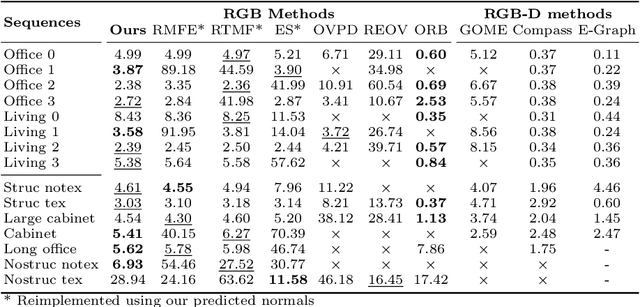



Abstract:Camera rotation estimation from a single image is a challenging task, often requiring depth data and/or camera intrinsics, which are generally not available for in-the-wild videos. Although external sensors such as inertial measurement units (IMUs) can help, they often suffer from drift and are not applicable in non-inertial reference frames. We present U-ARE-ME, an algorithm that estimates camera rotation along with uncertainty from uncalibrated RGB images. Using a Manhattan World assumption, our method leverages the per-pixel geometric priors encoded in single-image surface normal predictions and performs optimisation over the SO(3) manifold. Given a sequence of images, we can use the per-frame rotation estimates and their uncertainty to perform multi-frame optimisation, achieving robustness and temporal consistency. Our experiments demonstrate that U-ARE-ME performs comparably to RGB-D methods and is more robust than sparse feature-based SLAM methods. We encourage the reader to view the accompanying video at https://callum-rhodes.github.io/U-ARE-ME for a visual overview of our method.
A Distributed Multi-Robot Framework for Exploration, Information Acquisition and Consensus
Oct 03, 2023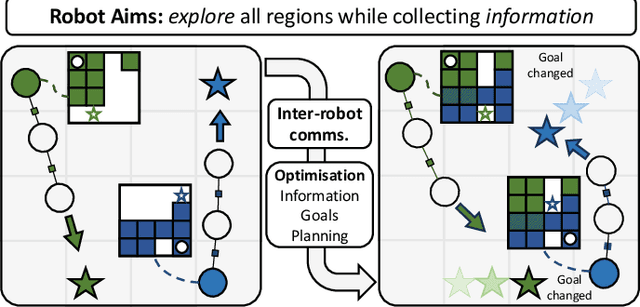
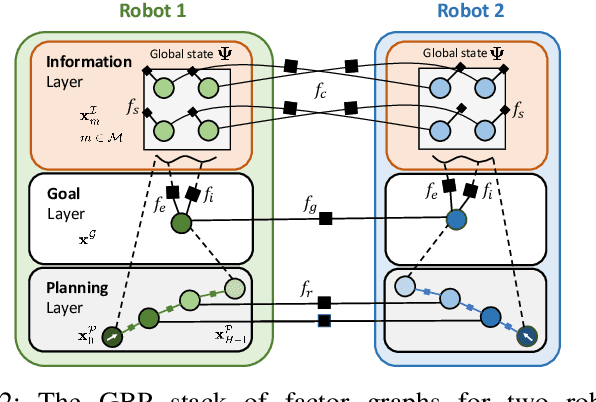
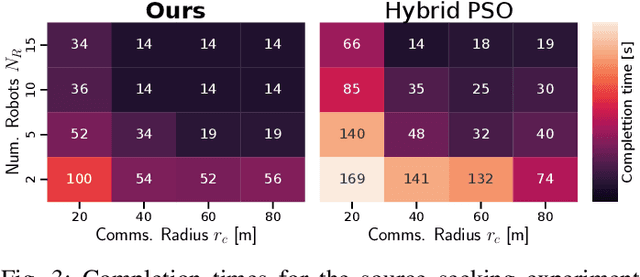
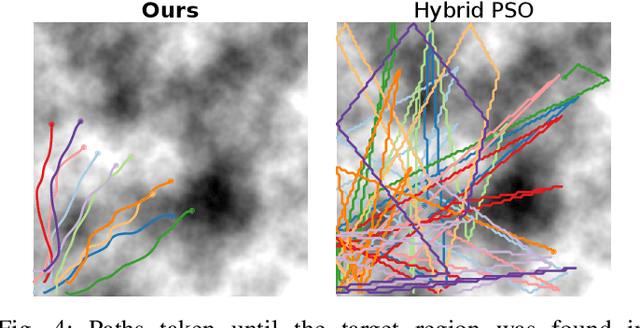
Abstract:The distributed coordination of robot teams performing complex tasks is challenging to formulate. The different aspects of a complete task such as local planning for obstacle avoidance, global goal coordination and collaborative mapping are often solved separately, when clearly each of these should influence the others for the most efficient behaviour. In this paper we use the example application of distributed information acquisition as a robot team explores a large space to show that we can formulate the whole problem as a single factor graph with multiple connected layers representing each aspect. We use Gaussian Belief Propagation (GBP) as the inference mechanism, which permits parallel, on-demand or asynchronous computation for efficiency when different aspects are more or less important. This is the first time that a distributed GBP multi-robot solver has been proven to enable intelligent collaborative behaviour rather than just guiding robots to individual, selfish goals. We encourage the reader to view our demos at https://aalpatya.github.io/gbpstack
Distributing Collaborative Multi-Robot Planning with Gaussian Belief Propagation
Mar 22, 2022
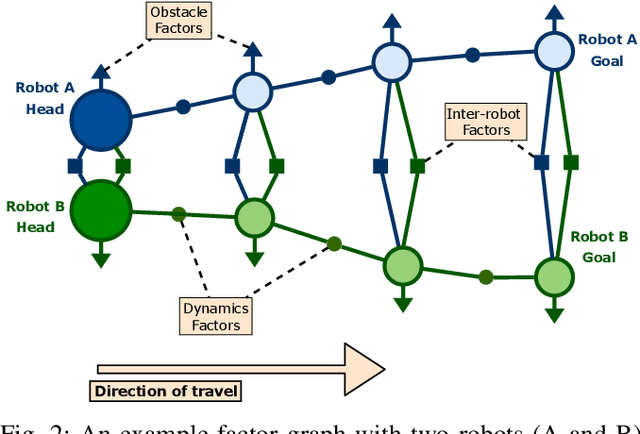
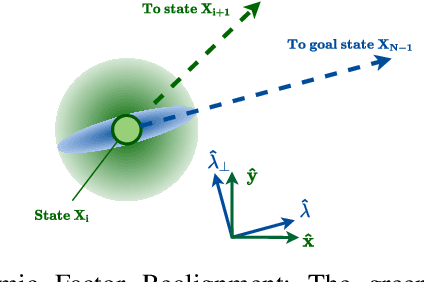
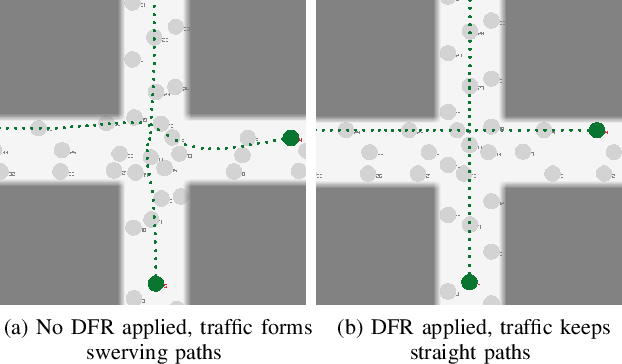
Abstract:Precise coordinated planning enables safe and highly efficient motion when many robots must work together in tight spaces, but this would normally require centralised control of all devices which is difficult to scale. We demonstrate a new purely distributed technique based on Gaussian Belief Propagation on multi-robot planning problems formulated by a generic factor graph defining dynamics and collision constraints. We show that our method allows extremely high performance collaborative planning in a simulated road traffic scenario, where vehicles are able to cross each other at a busy multi-lane junction while maintaining much higher average speeds than alternative distributed planning techniques. We encourage the reader to view the accompanying video demonstration to this work at https://youtu.be/5d4LXbxgxaY.
 Add to Chrome
Add to Chrome Add to Firefox
Add to Firefox Add to Edge
Add to Edge